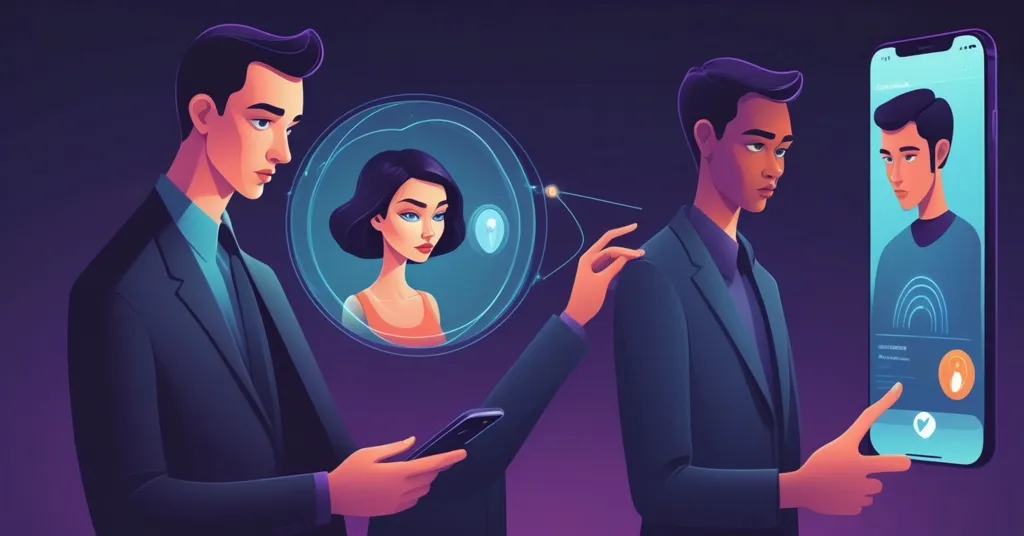Sam Altman’s World ID Teams Up with Match Group to Fight Catfishing in Japan

Swiping Right Just Got Safer: Sam Altman’s World Project and Match Group Team Up Against Catfishing
Iris-scanning technology is set to revolutionize online dating as Sam Altman’s World project collaborates with Match Group, the powerhouse behind apps like Tinder and Hinge. This partnership aims to combat the widespread issue of catfishing by integrating World’s “World ID” into dating platforms, starting with a pilot in Japan.
- World project partners with Match Group
- Pilot in Japan to combat catfishing
- Privacy concerns loom over biometric verification
On May 1, World project announced its collaboration with Match Group, which owns popular dating apps including Tinder, Match.com, Meetic, OkCupid, Hinge, Plenty of Fish, and OurTime. The initiative will introduce World ID, a biometric verification system, to these platforms to ensure user authenticity. The pilot will begin with Tinder users in Japan, a country chosen for its high tech adoption and burgeoning dating app market.
World ID utilizes a device called the Orb, which scans a user’s iris to generate a unique identification code. This “Proof of Human” system aims to confirm that each profile represents a real person, tackling the rise of AI-generated profiles and bots that plague online interactions. Blockchain technology underpins World ID, recording the iris scans in a way that can’t be altered or faked, ensuring the identity’s authenticity.
But why Japan? The choice is strategic, given the high penetration of technology and the growing dating app market there. A successful pilot could set a precedent for global expansion, addressing the pressing problem of catfishing. A 2024 survey reported that 62% of internet users in the U.S. have been victims of catfishing, with 53% of those affected being women and 18% aged between 16-24. For more detailed statistics, see catfishing statistics in the U.S.
However, the project isn’t without controversy. In regions like Hong Kong and Brazil, World project has faced significant pushback over privacy concerns related to the collection of iris and face images. Critics argue that such biometric data collection could lead to serious privacy violations, prompting regulatory scrutiny and even bans. In Brazil, the National Data Protection Agency (ANPD) banned Worldcoin’s practice of offering cryptocurrency for iris scans, citing concerns about consent validity and the permanent nature of biometric data.
Despite these challenges, World project remains committed to its vision. As a World project official stated,
“As AI continues to advance, the ability to confirm that a real person is behind every interaction will be essential to preserving trust and authenticity online. Technology helps us find each other. Real people make it meaningful.”
The integration of World ID into dating apps represents a bold step towards leveraging blockchain technology for more secure and authentic online interactions. Yet, it also raises critical questions about the balance between technological innovation and privacy. Can blockchain-based identity verification truly combat catfishing without compromising user privacy? And how will World navigate the complex regulatory landscapes in different countries?
While the potential benefits of this collaboration are clear, we must remain vigilant about privacy issues and the ethical implications of biometric data collection. The project also faces hardware limitations, with an Orb shortage potentially impacting its expansion plans. However, a successful pilot in Japan could pave the way for broader adoption of World ID in other sectors where identity verification is crucial.
In the world of cryptocurrency and blockchain, every step forward must be taken with both optimism and a healthy dose of skepticism. As we champion the ideals of decentralization and freedom, initiatives like this serve as both a testament to the power of these technologies and a reminder to stay grounded in reality, addressing the dark sides of these advancements.
Key Takeaways and Questions
- What is the purpose of the collaboration between World project and Match Group?
The collaboration aims to integrate World ID into Match Group’s dating apps to verify the authenticity of user profiles, combating catfishing and enhancing trust in online interactions.
- How does World ID work?
World ID uses a biometric device called the Orb to scan a user’s iris and generate a unique identification code, which is recorded on a blockchain for secure verification.
- Where will the pilot project start?
The pilot project will start with Tinder users in Japan.
- What are the privacy concerns associated with World project?
World project has faced criticism in Hong Kong and Brazil for potentially violating privacy laws by collecting iris and face images of the public.
- What are the statistics on catfishing in the U.S.?
A 2024 survey reported that 62% of internet users in the U.S. have been catfished, with 53% of victims being women and 18% aged 16-24.
As we push for a future where technology serves humanity without sacrificing our privacy, initiatives like World ID remind us to balance innovation with ethical considerations. Say goodbye to catfishes and hello to real human connections—unless you’re into mythical creatures, then you might need another app.



